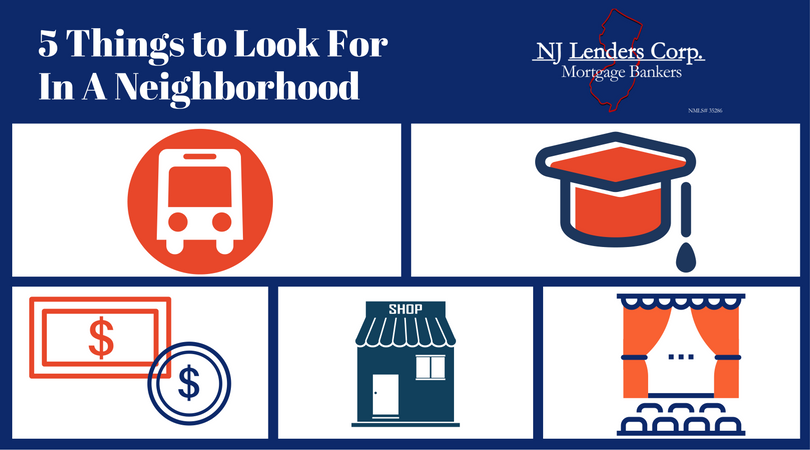
5 Things to Look for in a Neighborhood, No Matter Where You Move

Since relocating is such a major undertaking, it's vital to thoroughly research your options. This is especially essential regarding an overseas move. Here are five things to assess in a prospective neighborhood to ensure you'll feel at home, no matter whether your new home is here or abroad.
1. Transportation
One consideration is how you'll navigate your new surroundings. Find out whether you'll have access to public transportation or need a car. If you can use public transit, what are the service hours and stops? If you require airport proximity, determine how you'll get there. Do you currently have a job lined up? If so, calculate the distance of the commute from the neighborhood in question. Will the trip be a cakewalk, or grueling? According to World Knowing, the top-ranked countries with the best transportation systems in the world are Hong Kong, Singapore, the UAE, the Netherlands, Switzerland, Japan, Germany, France, Spain, and the UK.
Even if a REALTOR® lists the distance from a house to a public station, the calculation doesn't always include door-to-door travel time. You may be able to use Google Maps to determine this. If not, the website of a city's public transit system may provide a clue.
2. Businesses
Before visiting a neighborhood, think about businesses you'll be frequenting, such as a bank, grocery store, pharmacy and retail shops. Make sure they're a feasible distance from your prospective home. Also, ensure their customer service is reputable and prices are reasonable. For example, if there's a grocer nearby, does it stock staples, or only expensive gourmet goods? Where can you find fresh produce?
You may be able to minimize leg work by reading online business reviews. Yelp is expanding internationally, with websites emerging in Europe and Asia. Reviews are also conveniently available via iPhone and Android apps. Local Yelp announces business openings and events in major cities.
3. Schools
If you have children, REALTORS® will tell you that another must-have is access to quality education. Many overseas schools provide bus services, but trip length must be tolerable for kids. In towns where public schools are sub-par, you may want to enroll your children in private school. If so, consider the extra expense of entrance fees, tuition, uniforms and transportation.
Did you know there's a correlation between the presence of schools and crime? A 2011 study by the University of New Mexico found that elementary schools have a protective effect against property crimes. Middle schools, however, promote drug felonies, and high schools foster both property and narcotics crime. So, regarding school proximity, aim to be close enough for a short trip, though not a hop, skip and jump away.
Concerning school reputation, attend a PTA meeting at a given school. By speaking with other parents, you'll get firsthand information on the school's quality. A good school district increases a home's value, should you wish to sell in the future.
4. Amenities
Is culture important to you? If you're an avid fan of art, theater and music, this is a consideration. Do you like to frequent restaurants, pubs, or dance clubs? If these are high on your wish list, how close are they to the home you're debating? If you must travel to a distant town, factor in transit costs.
Also, research proximity to free entertainment, such as parks, museums and libraries. If you're a sports enthusiast, assess the distance to athletic arenas.
There's one caveat regarding crime: Steer clear of a neighborhood where bars are prevalent. The study mentioned above concerning schools and crime found that ready access to alcohol promotes violence and vandalism.
5. Economy
Neighborhood decline has telltale signs. Drive through the streets of a potential town, and look for financial clues. Examples of red flags are unkempt parks, littered streets and a prevalence of "For Sale" signs. Are people moving out of the area? Are businesses closing up shop?
Query librarians about the town and whether it's fiscally sound. Ask if the library has cut down its hours, another clue to a suffering economy. Look for indications that people care about their property and each other. Do houses and landscapes look maintained? Are neighbors interacting? If any seem friendly, ask about their experience of living there.
A Smart Move
Now you'll be a savvy traveler while exploring a new town. To ensure a successful move, evaluate the local:
- Transportation
- Businesses
- Schools
- Healthcare system
- Amenities
- Economy
Like a good journalist, get detailed information from reliable sources. Invite conversation, and record your observations. Then, make your smart move. You’ll be able to settle down for as long as needed in a wonderful neighborhood, whether that be in the United States or abroad.